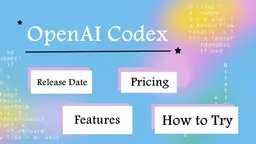GitBook 기능
GitBook은 팀이 협력하여 아름다운 문서를 생성, 편집 및 게시할 수 있도록 하는 현대적인 문서화 플랫폼으로, Git 기반 워크플로우, AI 지원 및 통합과 같은 기능을 제공합니다.
더 보기GitBook의 주요 기능
GitBook은 팀이 내부 및 외부 문서를 생성, 협업 및 게시할 수 있는 다목적 문서화 플랫폼입니다. Git과 유사한 버전 관리, AI 기반 검색 및 통찰력, 사용자 정의 가능한 테마, 방문자 인증 및 인기 도구와의 통합과 같은 기능을 제공합니다. GitBook은 제품 문서, API 문서 및 내부 지식 기반을 포함한 다양한 문서 유형을 지원합니다.
Git과 유사한 협업: 팀이 Git과 유사한 분기 워크플로를 사용하여 문서 작업을 할 수 있도록 하여 버전 관리 및 쉬운 협업을 가능하게 합니다.
AI 기반 지원: AI를 통합하여 글쓰기 개선, 요약 생성, 콘텐츠 번역 및 문서 기반 사용자 질문에 대한 즉각적인 답변을 제공합니다.
사용자 정의 가능한 게시: 사용자가 브랜드에 맞게 게시된 문서의 모양과 느낌을 쉽게 사용자 정의할 수 있도록 하며, 공개 또는 제한된 액세스 옵션을 제공합니다.
통합: 인기 있는 도구 및 플랫폼과의 통합을 제공하여 GitBook을 기존 워크플로 및 기술 스택에 쉽게 통합할 수 있습니다.
GitBook의 사용 사례
제품 문서: 기업은 GitBook을 사용하여 제품 또는 서비스에 대한 포괄적이고 사용자 친화적인 문서를 생성하고 유지할 수 있습니다.
API 문서: 개발자는 GitBook을 활용하여 내장된 OpenAPI 블록으로 상세한 API 문서를 생성하여 다른 개발자가 자신의 서비스와 통합하기 쉽게 만듭니다.
내부 지식 기반: 조직은 GitBook을 사용하여 팀을 위한 내부 위키, 기술 문서 및 지식 기반을 구축하고 유지할 수 있습니다.
오픈 소스 프로젝트 문서: 오픈 소스 프로젝트는 GitBook을 활용하여 문서를 생성하고 호스팅하며, 협업 기능과 GitHub 통합의 이점을 누릴 수 있습니다.
장점
드래그 앤 드롭 기능이 있는 사용자 친화적인 인터페이스
Git과 유사한 워크플로를 갖춘 강력한 협업 기능
콘텐츠 생성 및 개선을 위한 AI 기반 지원
브랜딩을 위한 유연한 사용자 정의 옵션
단점
대규모 팀이나 조직에 비쌀 수 있음
Git과 유사한 개념으로 인해 비기술 사용자에게 학습 곡선이 있음
팀 협업을 위한 제한된 앱 내 커뮤니케이션 기능
GitBook 월간 트래픽 동향
GitBook은 2025년 4월에 792K의 방문자 수를 기록하며 1.5%의 트래픽 감소를 보였습니다. 주목할 만한 제품 업데이트나 시장 활동이 없었던 점을 고려할 때, 이러한 경미한 감소는 일반적인 시장 변동을 반영하는 것으로 보입니다.
과거 트래픽 보기
더 보기













